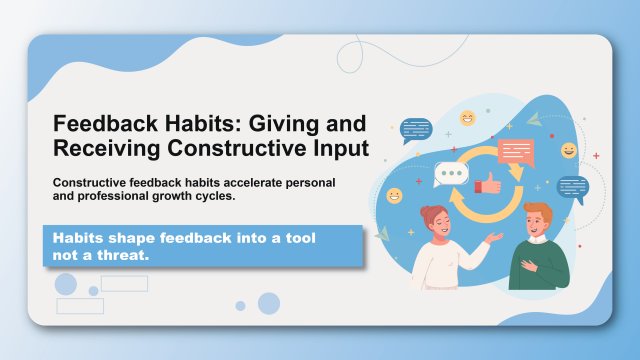Individual habit tracking is powerful, but when teams come together to track and build habits collectively, the impact multiplies exponentially. Team-based habit tracking harnesses the power of social accountability, shared purpose, and collective momentum to create positive change that extends far beyond what any individual could achieve alone.
Whether you're leading a corporate team, managing a sports club, coordinating a community group, or working with a family unit, implementing shared habit tracking can transform group dynamics and accelerate progress toward common goals. The social elements of team tracking—accountability, support, healthy competition, and shared celebration—address many of the challenges that cause individual habit efforts to fail.
Team habit tracking works because it taps into fundamental human psychology. We naturally want to belong, contribute to something meaningful, and avoid letting others down. When we commit to habits in front of our peers, we activate powerful social motivators that strengthen our resolve and increase our consistency. The visibility of our actions within a group creates a positive peer pressure that encourages better performance.
However, successful team habit tracking requires thoughtful planning and implementation. It's not simply about applying individual tracking methods to groups—it requires understanding group dynamics, designing systems that work for diverse personalities and schedules, and creating structures that support rather than pressure team members.
This comprehensive guide explores how to implement effective team habit tracking systems that build collective positive change while respecting individual differences and maintaining team cohesion. Whether you're just starting to explore group accountability or looking to optimize an existing team approach, you'll find practical strategies for creating sustainable collective change.
The Power of Social Accountability
Why Teams Accelerate Habit Formation
Peer Pressure and Social Proof When team members see others consistently performing habits, it creates social proof that the behavior is normal and expected, making it easier for everyone to maintain consistency.
Collective Momentum Teams can create momentum that carries individual members through difficult periods when personal motivation might waver. The group's energy and commitment can sustain individuals during challenging times.
Shared Knowledge and Support Team members can share strategies, overcome obstacles together, and provide practical support that makes habit formation easier and more successful.
Accountability Without Judgment Well-designed team systems create accountability that feels supportive rather than punitive, encouraging honest communication about challenges and setbacks.
The Psychology of Group Behavior Change
Social Learning Theory Team members learn from observing and interacting with others, accelerating the habit formation process through modeling and feedback.
Group Cohesion and Identity Shared habits contribute to group identity and cohesion, making participation feel meaningful and connected to belonging.
Collective Efficacy When teams believe they can achieve goals together, this collective efficacy enhances individual motivation and commitment.
Social Norms Formation Team habit tracking helps establish new social norms that support positive behaviors and discourage negative ones.
Types of Team Habit Tracking
Workplace and Professional Teams
Productivity and Performance Habits Teams can track habits related to work performance, productivity, and professional development.
Common Workplace Habits:
- Daily planning and goal-setting
- Exercise and wellness activities
- Learning and skill development
- Communication and collaboration practices
- Work-life balance activities
Team Building Through Habits Use habit tracking to build team cohesion and improve working relationships.
Team Building Examples:
- Gratitude practices within the team
- Regular check-ins and feedback sessions
- Shared learning experiences
- Volunteer and community service activities
- Wellness challenges and activities
Sports and Fitness Teams
Athletic Performance Habits Sports teams can track habits that contribute to individual and team performance.
Athletic Habit Categories:
- Training consistency and quality
- Nutrition and hydration practices
- Recovery and sleep habits
- Mental preparation and focus
- Skill development activities
Team Culture Development Build positive team culture through shared habits and values.
Culture Building Habits:
- Punctuality and preparation
- Supportive communication
- Leadership development
- Community engagement
- Academic or educational goals
Family and Personal Groups
Family Habit Systems Families can use habit tracking to improve household dynamics and support individual growth.
Family Habit Ideas:
- Household responsibilities and chores
- Family time and activities
- Health and wellness practices
- Educational and learning goals
- Values-based activities
Community and Social Groups Friends, neighbors, and community groups can track habits that benefit the larger community.
Community Habit Examples:
- Environmental and sustainability practices
- Community service and volunteering
- Local business support
- Neighborhood improvement activities
- Cultural and educational events
Setting Up Team Habit Tracking Systems
Planning and Goal Setting
Collaborative Goal Setting Involve all team members in identifying and prioritizing habits that align with group objectives.
Goal Setting Process:
- Individual reflection on personal and team goals
- Group discussion and idea sharing
- Consensus building on priority habits
- Clear definition of success metrics
- Timeline and milestone establishment
Habit Selection Criteria Choose habits that are meaningful, achievable, and aligned with team values and objectives.
Selection Guidelines:
- Relevance to team goals and mission
- Feasibility for all team members
- Measurability and trackability
- Flexibility for individual differences
- Positive impact on team dynamics
System Design and Structure
Tracking Methods and Tools Choose tracking methods that work for your team's size, tech-savviness, and preferences.
Technology Options:
- Shared spreadsheets or databases
- Team-focused apps and platforms
- Custom tracking solutions
- Hybrid digital and analog systems
- Integration with existing team tools
Accountability Structures Design accountability systems that feel supportive rather than punitive.
Accountability Elements:
- Regular check-ins and progress updates
- Peer support and encouragement
- Constructive feedback and problem-solving
- Celebration of successes and milestones
- Gentle guidance for those struggling
Individual vs. Collective Tracking
Individual Habits Within Teams Allow for individual habit tracking while maintaining team cohesion and support.
Individual Tracking Benefits:
- Personalized goal setting
- Respect for individual differences
- Flexibility in implementation
- Personal ownership and autonomy
- Customized success metrics
Collective Habits and Challenges Implement shared habits that the entire team commits to together.
Collective Tracking Examples:
- Team fitness challenges
- Group learning initiatives
- Shared service projects
- Collective wellness goals
- Team-building activities
Implementation Strategies
Getting Started
Team Assessment and Readiness Evaluate your team's readiness for collective habit tracking and identify potential challenges.
Assessment Areas:
- Team culture and dynamics
- Individual motivation levels
- Communication patterns
- Leadership and support structures
- Available time and resources
Pilot Programs Start with small pilot programs to test approaches and build confidence.
Pilot Program Elements:
- Limited time frame (2-4 weeks)
- Simple, achievable habits
- Basic tracking methods
- Regular feedback and adjustment
- Clear success metrics
Creating Engagement and Buy-in
Leadership and Modeling Team leaders should actively participate and model commitment to the tracking system.
Leadership Strategies:
- Demonstrate personal commitment
- Share struggles and successes openly
- Provide support and resources
- Celebrate team achievements
- Address challenges proactively
Voluntary Participation Maintain a culture where participation feels voluntary rather than mandatory.
Voluntary Participation Benefits:
- Higher intrinsic motivation
- Reduced resistance and resentment
- Better long-term sustainability
- Increased ownership and engagement
- Respect for individual autonomy
Building Supportive Culture
Psychological Safety Create an environment where team members feel safe to share challenges and setbacks.
Safety Building Practices:
- Normalize struggles and setbacks
- Focus on progress, not perfection
- Encourage open communication
- Provide constructive support
- Celebrate effort as much as results
Positive Reinforcement Use positive reinforcement to encourage continued participation and effort.
Reinforcement Strategies:
- Regular recognition and appreciation
- Peer-to-peer acknowledgment
- Team celebrations and rewards
- Progress sharing and storytelling
- Milestone achievements
Advanced Team Tracking Concepts
Gamification for Teams
Team Challenges and Competitions Create friendly competitions that unite rather than divide team members.
Challenge Types:
- Team vs. team competitions
- Individual challenges within teams
- Collaborative goal achievement
- Skill-building tournaments
- Service and contribution challenges
Reward Systems Design reward systems that recognize both individual and collective achievements.
Reward Categories:
- Individual recognition and achievements
- Team celebrations and experiences
- Skill development opportunities
- Leadership and mentorship roles
- Community recognition and impact
Data Analysis and Insights
Team Performance Metrics Track metrics that provide insights into team dynamics and collective progress.
Useful Team Metrics:
- Overall participation rates
- Consistency across team members
- Improvement patterns and trends
- Support and interaction levels
- Challenge and obstacle patterns
Collective Intelligence Use team data to identify best practices and optimization opportunities.
Intelligence Gathering:
- Successful strategy sharing
- Obstacle identification and solutions
- Timing and environmental factors
- Motivation and engagement patterns
- Resource and support needs
Scaling and Evolution
Growing Team Programs Expand successful habit tracking programs to larger groups and organizations.
Scaling Strategies:
- Train team leaders and champions
- Develop standardized processes
- Create resource libraries and guides
- Establish support networks
- Measure and communicate impact
Program Evolution Continuously improve and adapt team tracking systems based on feedback and results.
Evolution Approaches:
- Regular program reviews and updates
- Feedback collection and analysis
- New habit introduction and rotation
- Technology upgrades and improvements
- Leadership development and training
Common Challenges and Solutions
Participation and Engagement Issues
Inconsistent Participation Address challenges with team members who struggle to participate consistently.
Solutions:
- Identify and address barriers to participation
- Provide additional support and resources
- Modify expectations and requirements
- Create alternative participation methods
- Focus on individual progress rather than comparison
Motivation Sustainability Maintain team motivation and engagement over time.
Sustainability Strategies:
- Regular program refreshes and updates
- New challenges and variety
- Success story sharing and celebration
- Leadership rotation and development
- Connection to larger purpose and impact
Group Dynamics Challenges
Peer Pressure and Competition Manage unhealthy competition and pressure within teams.
Management Approaches:
- Emphasize collaboration over competition
- Celebrate diverse forms of success
- Address conflicts quickly and directly
- Focus on personal growth and improvement
- Create inclusive participation opportunities
Individual Differences Accommodate different personalities, schedules, and capabilities within teams.
Accommodation Strategies:
- Flexible participation options
- Multiple habit choices and alternatives
- Individualized support and resources
- Respect for different paces and approaches
- Inclusive communication and feedback
Technology and System Challenges
Technical Difficulties Address technology challenges that might impede participation.
Solutions:
- Provide training and support
- Offer multiple technology options
- Create backup systems and alternatives
- Simplify interfaces and processes
- Maintain technical support resources
Data Privacy and Security Protect individual privacy while maintaining team transparency.
Privacy Considerations:
- Clear data use policies
- Individual privacy controls
- Secure data storage and sharing
- Opt-in rather than opt-out sharing
- Regular privacy reviews and updates
Measuring Success and Impact
Team Performance Indicators
Quantitative Measures Track numerical indicators of team habit tracking success.
Quantitative Metrics:
- Participation rates and consistency
- Habit completion percentages
- Goal achievement rates
- Program retention and longevity
- Resource utilization and efficiency
Qualitative Measures Assess the qualitative impact of team habit tracking on group dynamics and culture.
Qualitative Indicators:
- Team communication and collaboration
- Workplace culture and satisfaction
- Individual growth and development
- Problem-solving and innovation
- Community and social impact
Long-term Impact Assessment
Organizational Culture Change Evaluate how team habit tracking contributes to broader organizational culture change.
Culture Indicators:
- Employee engagement and satisfaction
- Leadership development and effectiveness
- Innovation and creativity measures
- Retention and recruitment success
- External recognition and reputation
Individual Development Assess the impact on individual team members' personal and professional growth.
Development Measures:
- Skill development and learning
- Career advancement and opportunities
- Personal satisfaction and wellbeing
- Leadership capabilities
- Network and relationship building
Team habit tracking represents a powerful approach to collective behavior change that can transform group dynamics, improve performance, and create lasting positive impact. By thoughtfully implementing team-based tracking systems, organizations can harness the power of social accountability to achieve goals that seemed impossible for individuals alone.
The key to successful team habit tracking lies in balancing individual autonomy with collective accountability, creating supportive rather than pressured environments, and maintaining focus on meaningful goals that align with team values and objectives. When done well, team habit tracking becomes a catalyst for positive change that extends far beyond the habits themselves.
Remember that building collective change takes time, patience, and continuous adaptation. Start with small, achievable goals, celebrate successes along the way, and remain flexible in your approach. The most successful team habit tracking systems are those that evolve with the team and continue to serve their collective growth and development.
Ready to harness the power of team habit tracking for collective positive change? Start your team transformation journey with Habityzer and discover how shared accountability can accelerate your group's progress toward meaningful goals.


